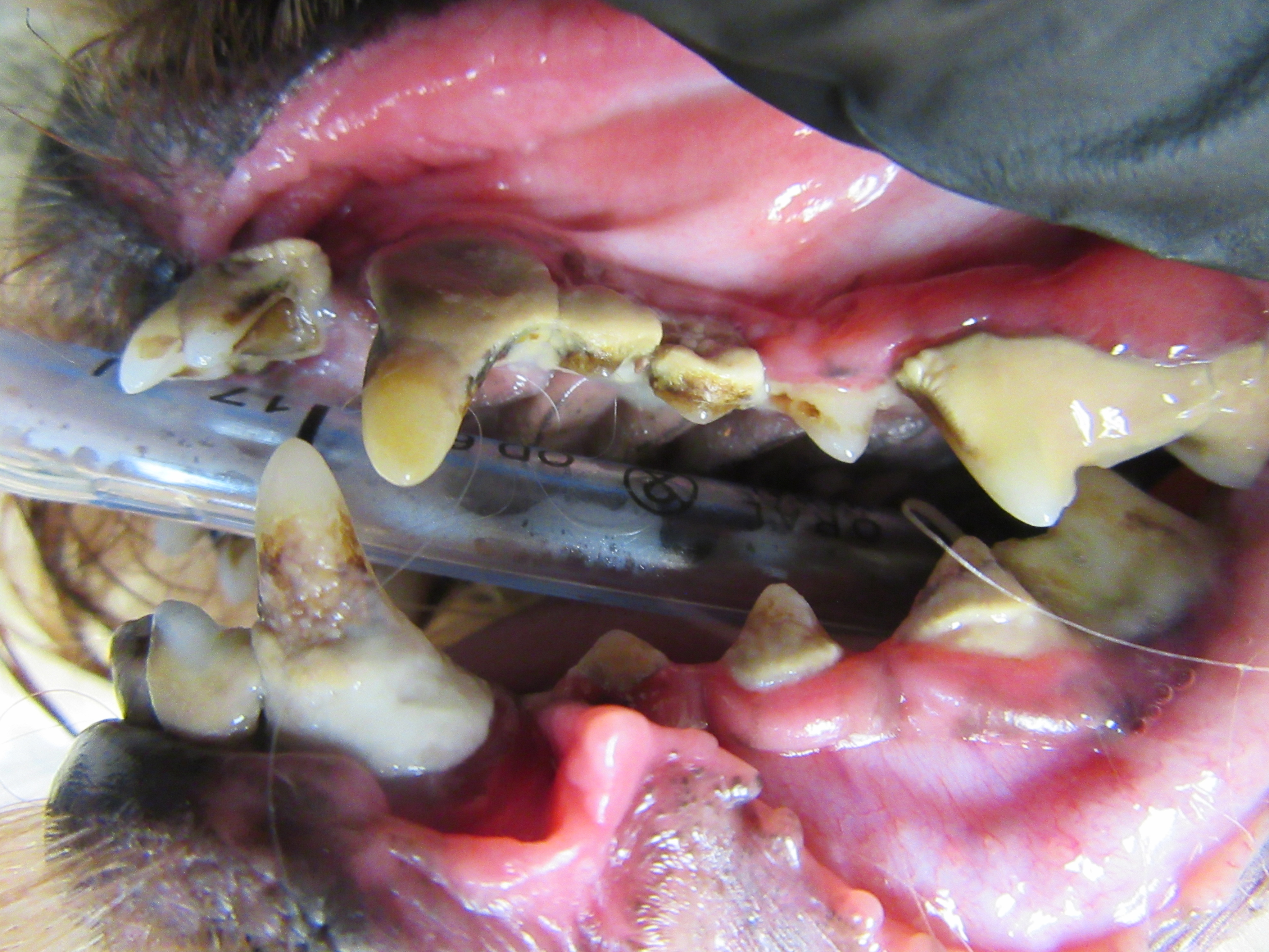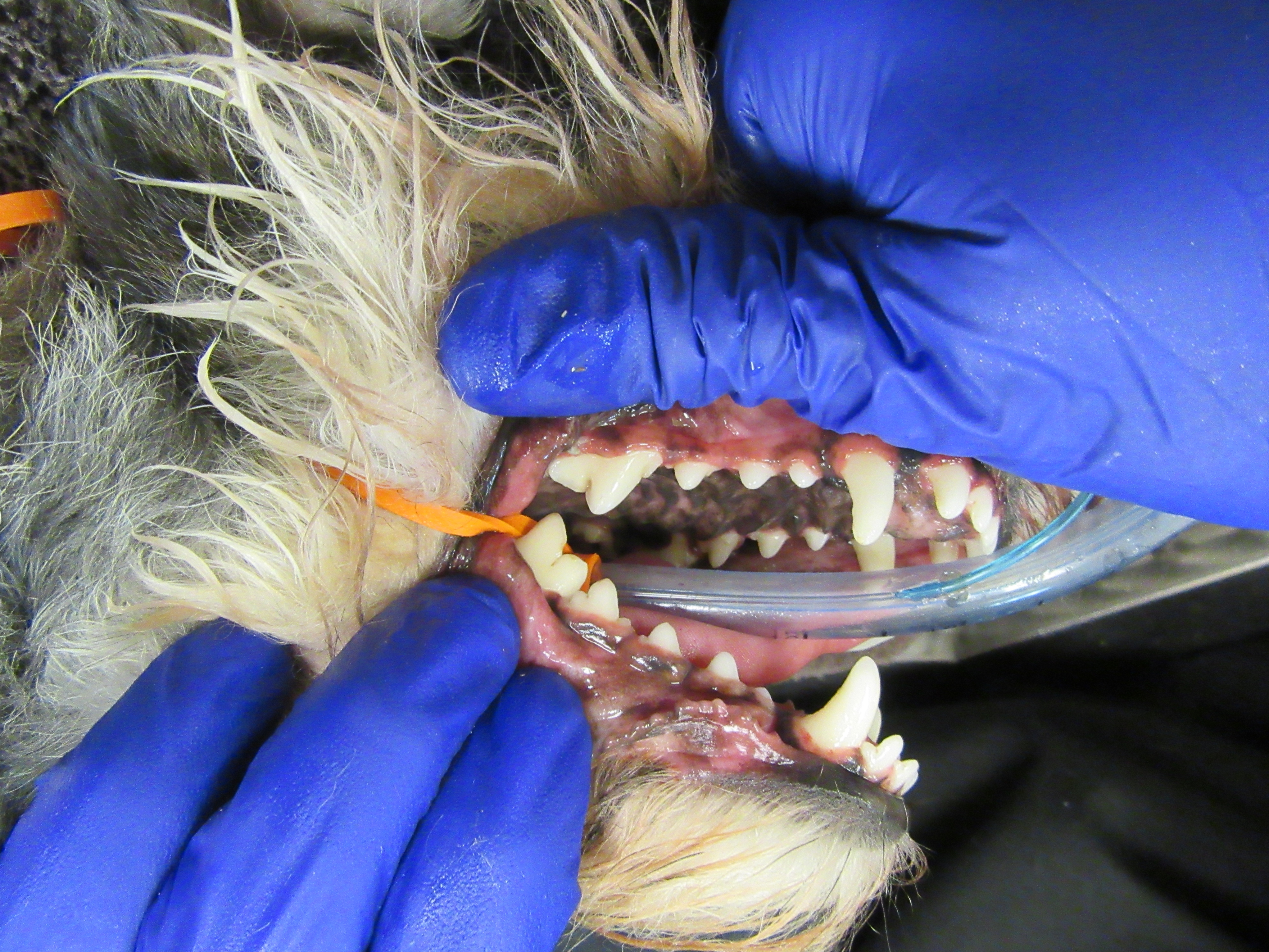Dentistry
The staff at the PetCare Center is committed to veterinary dental excellence. Our doctors attend continual education in veterinary dentistry and our technicians are certified in veterinary dentistry.
Your pet's oral health is a good indicator of his or her overall well-being. We check the teeth and gums at every wellness exam to look for signs of infection or other dental problems. Additionally, you can schedule an appointment for a dental cleaning under general anesthesia. Our staff works with clients to teach them proper toothbrushing techniques for an at-home routine.
More than 85% of dogs and cats that are at least 4 years old have a condition in which bacteria attack the soft gum tissue. This condition is called periodontal disease. Periodontal disease is the final stage in a process that begins with the development of plaque on your pet’s teeth. Plaque is a substance that forms when bacteria multiply on the teeth and gums. Plaque mixes with saliva, hardens, and becomes the substances known as tartar and calculus. Bacteria, plaque, tartar, and calculus irritate the gums, which become tender, red, and swollen. This stage of dental disease is called gingivitis. Eventually inflamed gums separate from the teeth, creating pockets that can trap more bacteria. These pockets deepen and bacteria may attack the roots of the teeth and the bony tissue of the jaw, causing teeth to loosen, the gums to bleed, the breath to smell, and pain when your pet eats. This is full-blown periodontal disease.
Bacteria from the teeth and gums can enter the bloodstream and may travel to major organs and begin infection there. Among organs that are most often affected are the lungs, heart, kidneys, and liver. Parts of the nervous system may be affected as well. Although these infections are usually treatable when caught at an early stage, they can cause serious damage to these organs and, if not caught in time, may cause death.
Periodontal disease can be prevented and treated. The keys to your pet’s oral health are professional veterinary dental care and good care at home. Too few pets receive both and most don’t receive either. You can change that today!
Before and After Dental Treatment
 |
 |
Step 1. Visit your veterinarian.
In addition to a physical examination and medical history, the doctor will examine your pet’s teeth and gums. Recommendations may be made for cleaning, polishing, and other dental care in the hospital, or your veterinarian may suggest a program of home dental care.
Step 2. Professional dental care.
If your pet already has evidence of periodontal disease, a professional cleaning is in order. To provide excellent dental care, bloodwork, dental radiography and other diagnostic tests are performed to evaluate the heart, liver, and kidneys for coexisting disease before proceeding with general anesthesia.
Once your pet is under anesthesia, accumulated tartar and calculus is removed by ultrasonic and hand scaling. Teeth needing fillings or root canals can be repaired and teeth that are beyond repair can be extracted. The teeth are then polished to slow down formation of new plaque, tartar, and calculus. Finally, a dental sealant is placed on the teeth. If there is evidence of major bone loss or another serious oral condition, your veterinarian may refer you to a veterinary dental specialist.
Step 3. Dental care at home.
For cats and dogs, regular brushing is an important part of any preventive dental program. A special toothbrush and toothpaste for pets are recommended. Your veterinarian can show you the proper way to brush your pet’s teeth.
Feeding your pet coarse-textured food may help prevent accumulation of plaque, tartar, and calculus. Ask your veterinarian to advise you as to the best diet for your pet.
Step 4.
Return to your veterinarian for regular dental checkups every 6 to 18 months, or as recommended.